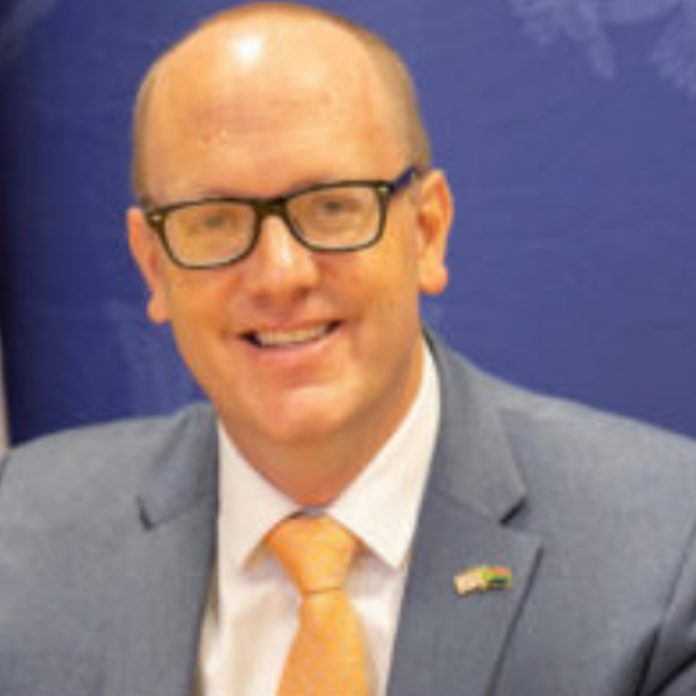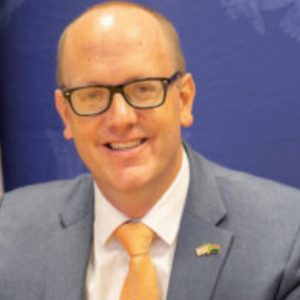US Consul General, Will Stevens
By Our Reporter
The United States Consul General in Lagos, Will Stevens recently spoke to The Punch on why there is backlog in fresh visa application in Nigeria which has extended to 2024 .
He said the backlog was as a result of COVID-19 which led to the exit of so many staff.
He added that the Embassy had embarked on moves to the checkmate the backlog by employing new staff.
He said “we have a big backlog and we are working hard to dig into it. It has dropped quite a bit in the last two months. We have increased the eligibility for people to use what we used to call Dropbox, which is interview waiver. If you have had a visa that expired in the last four years, you don’t have to come in for an interview. That window used to be two years, but now it’s four years”
He continued “”That means many more people don’t have to come in for an interview. We have also increased staffing by adding more people so we can deal with the surge. Covid-19 really hit us in terms of staffing; some people left and we had to conduct interviews and go through the process. But now we are back to full staffing. I am optimistic that it may take some time but we will get there. I think there is an incredible demand and interest. One of the things we have done is to prioritise key sectors, like student visas for people who want to travel on time for the September resumption and now for January. We had a 12 per cent increase this year in the number of Nigerians studying in the US after almost 15,000 Nigerians in the US, which puts Nigeria in the top 10 countries that send students to the US. It’s a wonderful thing; they go and study and they come back with deep connections to the US”
“Talk of the Optional Practical Training, which enables them to work for some time after they graduate. I can’t tell you how many Nigerians who spent some time in the US working or studying and they brought that experience back to Nigeria. I think it’s a really good thing and we are right to focus on that. The backlog is still there and we are working hard on it and I think we will get the figures down. But like I said, there is a decrease in the waiting time, and it has gone down quite significantly. For example, the wait time for B1/B2 has dropped from 740 days to 443 days”
On what is fuelling the surge, he stated that “the demand is there for sure, but some apply for visas in advance if the date is close. Also, there are people who have somehow figured out a way to buy appointments. That has been a challenge we are working on. We definitely discourage people from using those systems. You don’t have to pay to get an appointment for a visa and for people who want to travel urgently for business, humanitarian and medical needs, they could request for an expedited appointment. For students, we are going through the system to try to get them appointments, so they don’t have to use those channels. We are aware of the problem, we definitely discourage it and we are doing our best to try to put some systematic changes in the appointment system”
“However, I’m a strong believer in exchange. I’m not into the brain drain narrative; I believe that when you go to the US or an American comes here, you learn and understand the environment and you can export the new skills you have acquired back to your country. Let’s say you travel to the US for your PhD and you come back to your university and you have connections with academics in the United States, which makes your research international, making you a better professor and academic. I think it’s a good thing and there are countless stories of really successful leaders in Nigeria who have spent some time in the US. So, we are happy about it”


